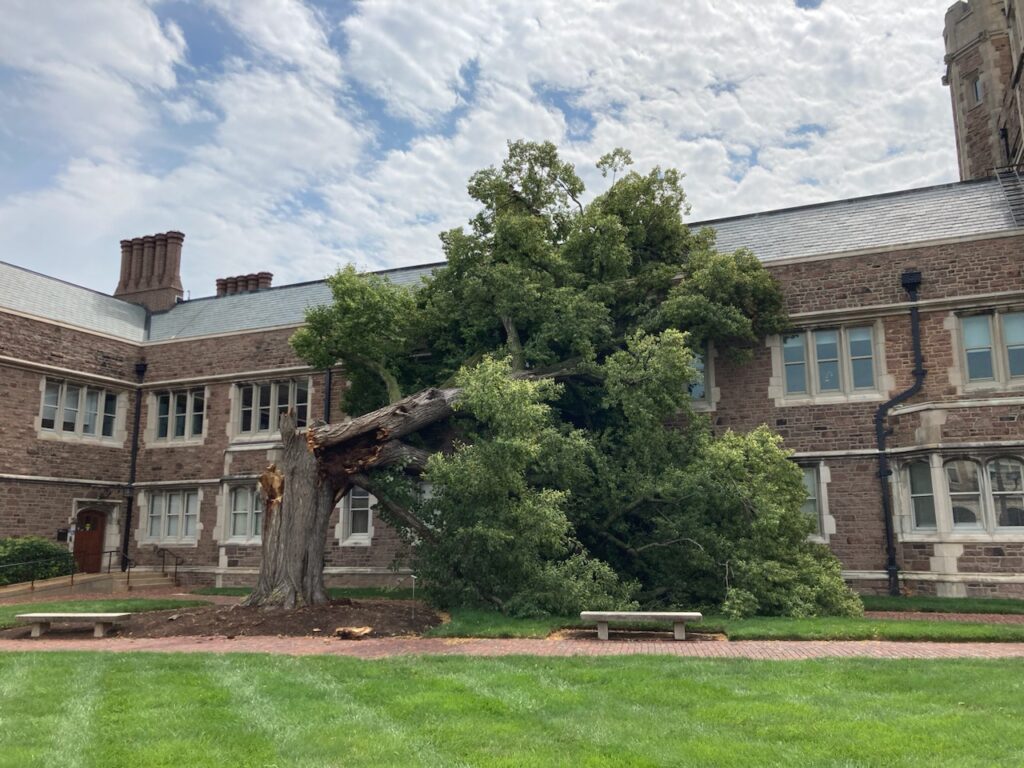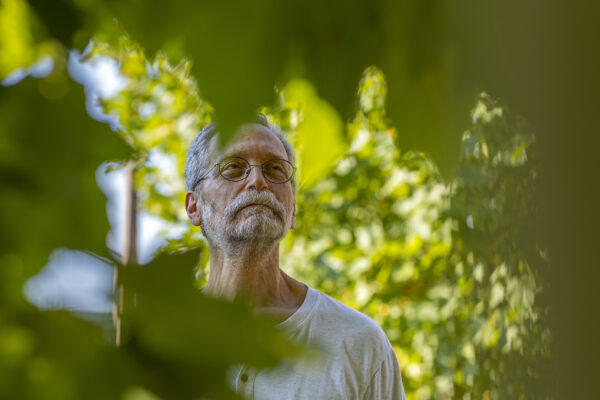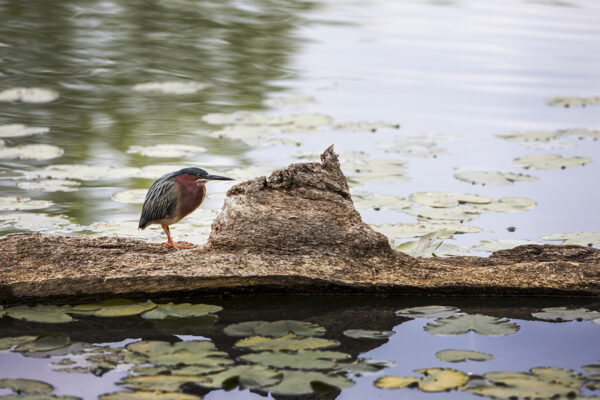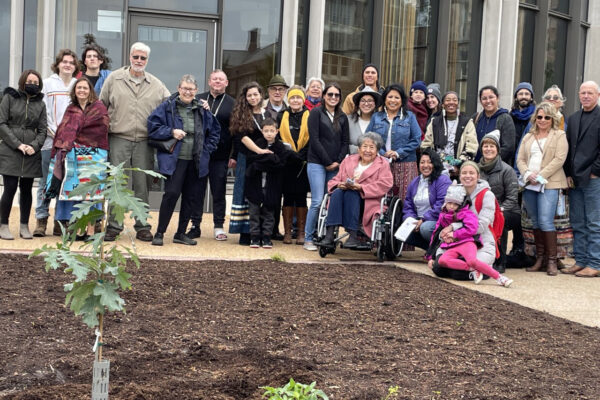In June, a violent storm toppled one of the most beloved and oldest trees at Washington University in St. Louis. For approximately 110 years, the American basswood in Brookings Quadrangle served as a home to bees, a beautiful backdrop for dozens of Commencement ceremonies and a shady refuge for generations of students, staff and faculty.
But thanks to a team of tree experts, the American basswood will live on. At 9 a.m. Sept. 20, a genetically identical young tree will be planted at the same location of the felled one. Stan Braude, curator of the WashU arboretum and a professor of practice in biology in Arts & Sciences, will be there with his class “Woody Plants of Missouri” and invites the community to attend the planting.
“The American basswood was an iconic tree on this campus,” Braude said. “I’ve heard from so many people who miss that tree, so it’s exciting that a new one will take its place.”
About three years ago, Cody Azotea of Focal Pointe Outdoor Solutions noticed that the tree was failing and set out to grow identical copies, or clones, of the original basswood. He used a plant propagation technique of grafting twigs from the basswood onto new rootstock. Azotea’s title is account manager, but Braude thinks of him as more of a miracle worker who creates natural spaces that are as sustainable as they are beautiful. Azotea managed to grow 17 clones, three of which are already in the Quad. They look pretty small today, but will stand 30 feet in the next decade or so.
“A lot of trees spend a year or two establishing their roots,” Braude explained. “It looks like they aren’t doing well or not growing, but then they’ll shoot up. The younger you plant something, the better chance it has to succeed and have a long life.”

The new tree will add to the university’s collection of nearly 6,000 trees. Awarded Tree Campus USA status by the Arbor Day Foundation and Level 2 accreditation by the ArbNet Arboretum Accreditation Program, Washington University boasts some 300 species, including about 100 native Missouri species. Braude’s goal is to have all Missouri species — about 150 — represented on campus. Azotea and Chris Anderson, the university’s grounds and landscape design manager and horticulturist, also are planting species that thrive in Arkansas and Oklahoma, in an attempt to gauge which species will survive in a warming Missouri.
The trees add to the beauty of Washington University, widely considered one of the loveliest campuses in the nation. The sustainability benefits are many, too — trees capture stormwater runoff, conserve electricity and reduce atmospheric carbon. The trees also support the university’s research mission. As curator, Braude has started to track growth and health data, information that will be available to local landscape architects and gardeners.
But there’s another reason why Braude loves WashU’s trees: because his students do. During the COVID-19 pandemic, Braude erected white boards outdoors on campus so he could teach outside. Today, he still teaches in the courtyard outside of Somers Family Hall.
“You find students spending time outside as much as they can, even in the winter,” Braude said. “Once it gets even a little bit warm, you will find students sitting under the crabapple tree and studying under an oak. The more canopy cover and the more natural it looks, the more it reduces their stress. These trees have a real effect on our well-being.”




